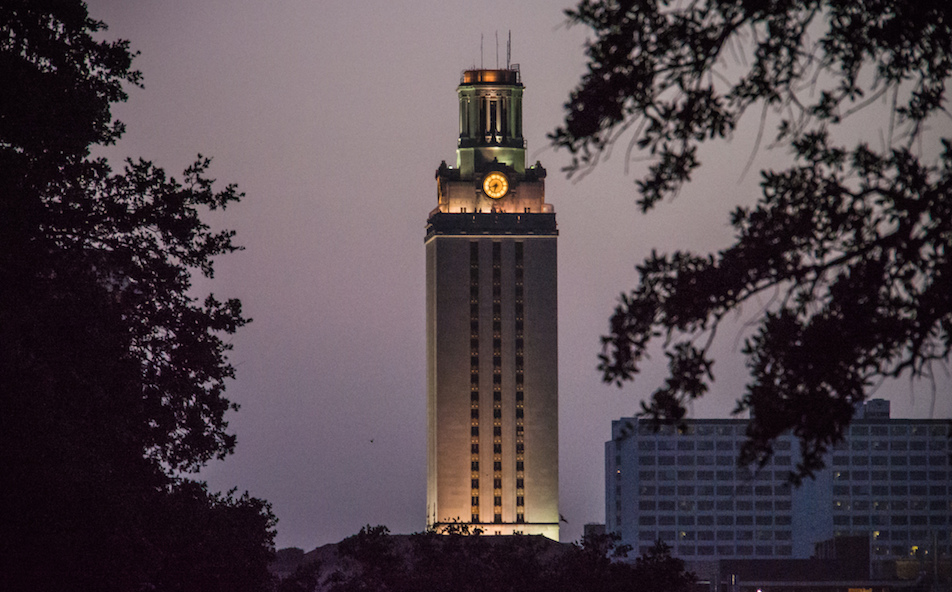
University of Texas
Updated March 28, 2016, to make clear that University of Texas pollsters posed some questions only to survey participants who said they think climate change is occurring (73 percent of all respondents). Originally, this article inadvertently omitted that qualification.
+++++
By Bill Dawson
Texas Climate News
Coming just a few weeks after nearly 200 nations agreed in Paris on a sweeping international plan to combat climate change in December, the latest University of Texas Energy Poll has found wide support for such climate action in the U.S. The results were released Thursday.
“We’re seeing strong support for collaborative efforts among nations to combat the effects of climate change,” said Sheril Kirshenbaum, director of the semiannual survey.
A large majority of respondents, who were surveyed in January, said they supported action against climate change in the latest version of the semiannual UT Energy Poll.
For the first time since the national poll was launched in 2011, participants were provided several statements describing possible U.S. roles in addressing global climate change and asked which one best reflects their own opinion.
Of the 73 percent of respondents who said climate change is occurring, the largest number – 43 percent – picked this statement: “Climate change is an urgent threat and all countries need to take action equally.”
However, a greater portion of those who say it is occurring – 48 percent combined – selected one of three slightly different statements that each said the U.S. should be doing more than others:
- Twenty-seven percent chose this statement: “Because the U.S. is a global leader, it should set an example by doing more than other nations.”
- Eleven percent selected this one: “The U.S. has a moral obligation to act and should do more than other nations.”
- And 10 percent said this statement best reflected what they think: “Because the U.S. has contributed disproportionately more emissions, it should do more than other nations.”
Considered together, the answers meant that two-thirds of all survey respondents – 66.4 percent – favored climate action of some kind. Only 2 percent of respondents who think climate change is happening chose “do nothing” as the statement they most agreed with.
Another question posed for the first time in a UT Energy Poll asked about the central phenomenon at the heart of the multifaceted process called climate change: “One of the anticipated effects of global climate change is significant increase in the temperature of the planet. How concerned are you about this?
Of the 73 percent who said climate change is occurring, 71 percent said they were concerned (with the largest portion – 40 percent – saying “very concerned”), while just 8 percent said they were “not concerned.”
In other poll results on climate-related questions:
- Large majorities of Democrats (81 percent) and Republicans (60 percent) who said climate change is occurring said they were concerned about a significant temperature increase. (The Republican response contrasts with generally dismissive statements about the seriousness of climate change by leading candidates for that party’s presidential nomination.)
- Two-thirds of respondents who said it is occurring (66 percent) said climate change is “mostly due to human actions.” In the “occurring” group, slightly more than a fourth (28 percent) said it is “equally due to humans and natural forces,” while only 5 percent said “mostly due to natural forces.” (Climate scientists overwhelmingly agree that the global average temperature increase over recent decades has mainly been human-caused by heat-trapping pollution from fossil fuels.)
- Nearly two-thirds of all poll participants (64 percent) said that reducing carbon dioxide emissions from fossil-fuel use should be a priority issue for the U.S., compared to 15 percent who said it shouldn’t be a priority.
The UT Energy Poll was developed by the university’s McCombs School of Business and supported by its KBH Center for Energy, Law & Business. UT says it “is intended to provide an objective, authoritative look at consumer attitudes and perspectives on key energy issues, and is designed to help inform national discussion, business planning and policy development.”
+++++
Bill Dawson is the founding editor of Texas Climate News. He received a master’s degree in journalism from the University of Texas quite some time ago.
